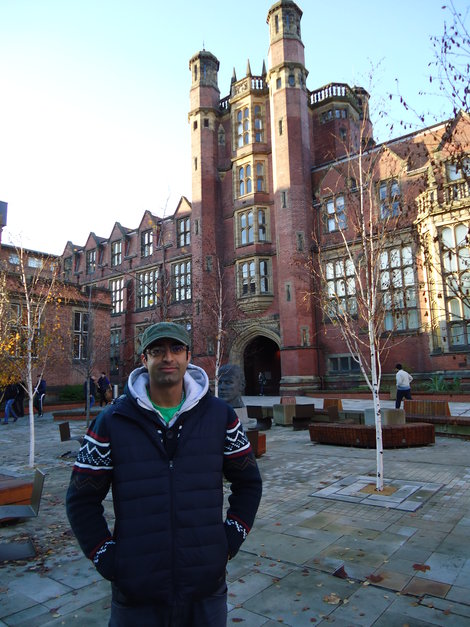Die Inhalte dieser Seite sind leider nicht auf Deutsch verfügbar.
Seitenpfad:
- Startseite
- ...
- INTERCOAST
- Latest News
- Archiv
- News 2015
- News from Ehsan (formerly IC 4)
- News from Ehsan - A report by Dr. Ehsan Jorat (formerly IC 4)
INTERCOAST
News from Ehsan - A report by Dr. Ehsan Jorat (formerly IC 4)

In November 2014, Dr Ehsan Jorat became a member of the academic staff at Newcastle University and he has been involved in research and teaching at the School of Civil Engineering and Geosciences.
To learn more about the SUCCESS project and Ehsan, please follow these links:
http://research.ncl.ac.uk/success/
http://www.ncl.ac.uk/ceg/staff/profile/ehsan.jorat
To learn more about the SUCCESS project and Ehsan, please follow these links:
http://research.ncl.ac.uk/success/
http://www.ncl.ac.uk/ceg/staff/profile/ehsan.jorat
Ehsan is currently a geotechnical coordinator of the SUCCESS project (Sustainable Urban Carbon Capture: Engineering Soils for Climate Change) funded by EPSRC (Engineering and Physical Sciences Research Council). His role involves designing and implementing field experiments to monitor geotechnical properties of the field during the carbonation process, assess the impact of soil carbonation on flood risk and determine a validation process for measuring the carbonation process. Within this geotechnical framework, short and long-term field sites suitable for investigation of carbonation will be identified and constructed. Existing sites with a known history will be included, and new sites with specific known artificial components (reclaimed concrete aggregate or natural dolerite/basalt aggregate) or other materials will be built, including quarry fines and steel slag.
A wide range of stakeholders are involved in the SUCCESS project and universities across the UK are collaborating with the project.
The UK has a major goal of reducing CO2 emissions by 80% by 2050, compared with a 1990 baseline. This ambitious target requires engagement with diverse sectors of society. Although the major CO2 emissions reduction is likely to be achieved through improved efficiency in the energy system including low carbon energy and fuels, land use will also play a significant role. This has implications for geotechnical engineers involved with the design and associated infrastructure in urban space.
Although at any one time much of the urban space is occupied by buildings and hard infrastructure, the next 40 years will see demolition and construction activity, where the impact and opportunity for a national carbon budget in redevelopment can be considered.
Previous research has shown that onsite soils at the Newcastle Science Central brownfield site (formerly occupied by the Newcastle Brewery) removed approximately 100 t CO2 per hectare monthly. Assuming that the UK has 1.7 million ha of urban land, our latest estimates suggests that only 1000 ha of land (or 3 Olympic parks) in a similar state to that of Science Central will remove 1M t CO2 annually.
Before moving to the UK, Ehsan joined the INTERCOAST organization at MARUM – Centre for Marine Environmental Sciences as a scholarship PhD student in June 2011 and successfully completed his studies in July 2014. He then was awarded MARUM Funding Grant for Conclusion of Manuscripts before he joined Newcastle University in November 2014.
“If it was not for the support of INTERCOAST organization and Prof Katrin Huhn in particular, I would never be able to finish my studies and take up the position at Newcastle University. I want to thank my supervisors Prof Tobias Moerz and Dr Vicki Moon and advisors Dr Stefan Kreiter and Dr Willem de Lange for their never ending support and help through the course of my PhD. Thanks for never giving up on me”, says Ehsan.


